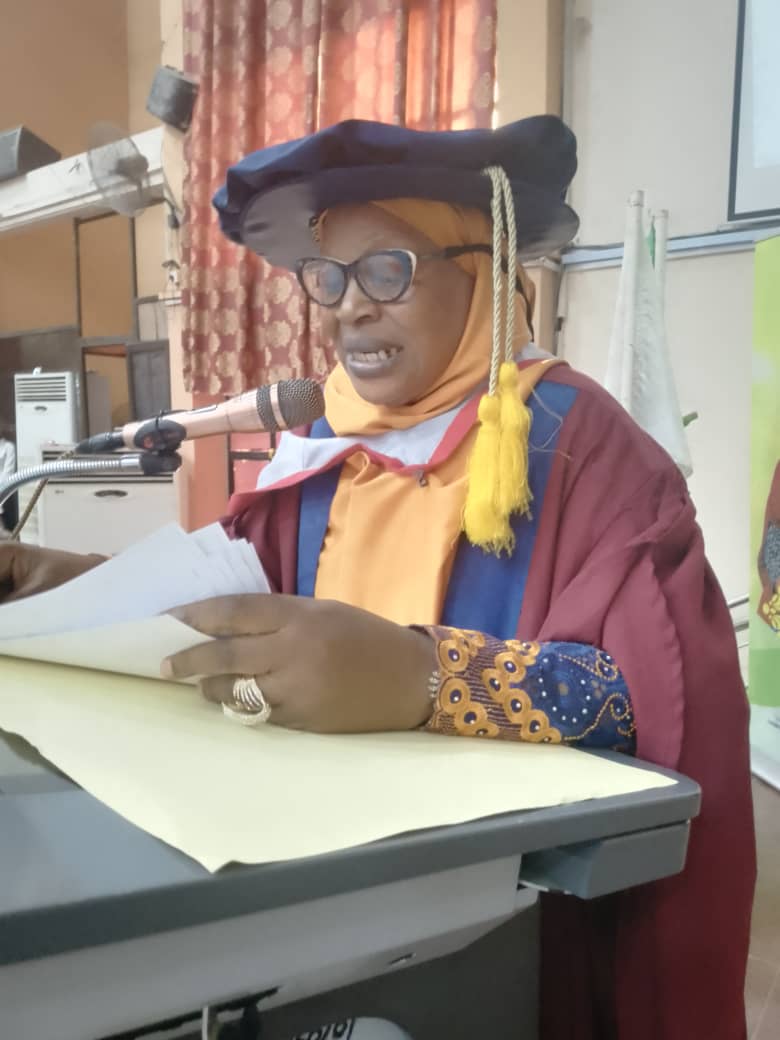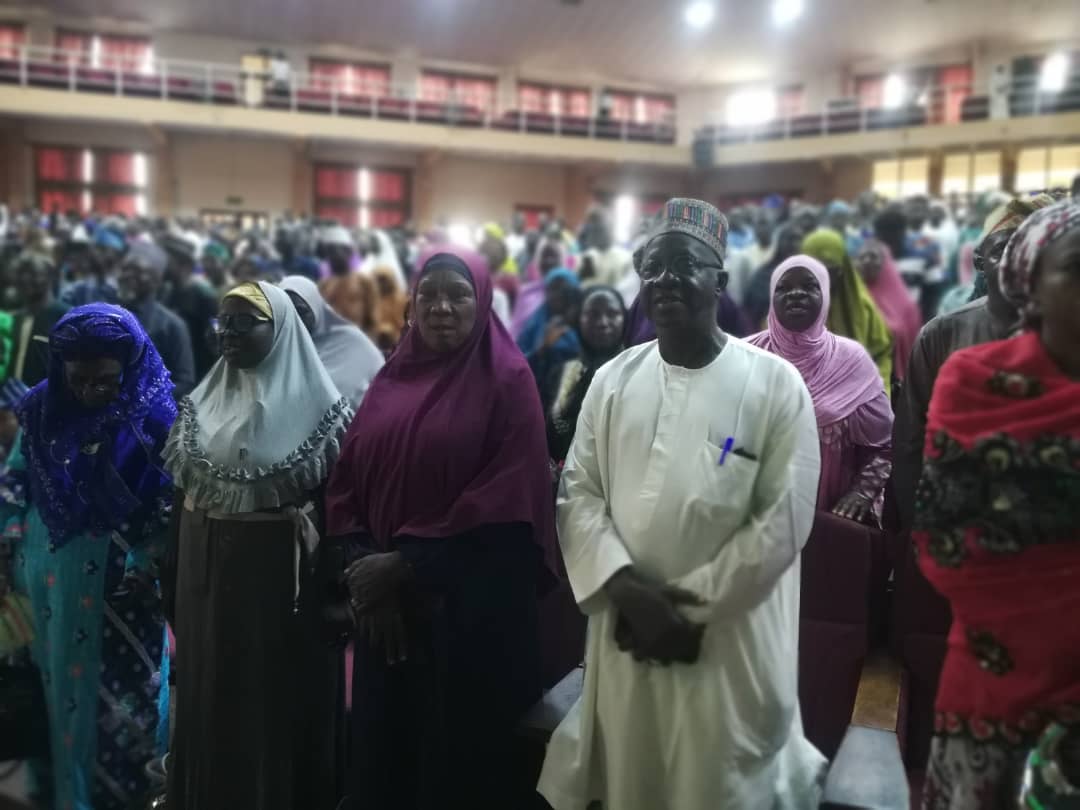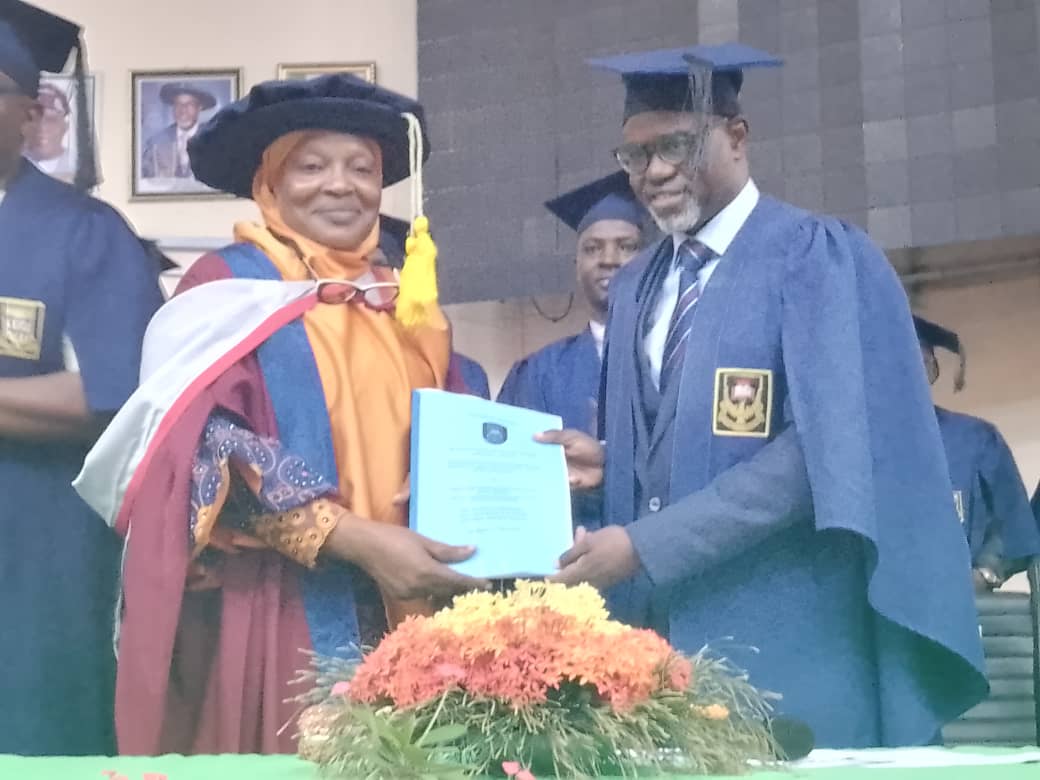
By Gbolahan Balogun
A Professor of chemistry at the University of Ilorin, Adenike Modinah Oladayo Abdulraheem, has delivered a stark warning about the dangers posed by environmental pollution and how human activities threaten human very existence, urging immediate and concerted efforts to mitigate these self-inflicted environmental perils.
In a captivating 262nd inaugural lecture of the university titled “The Sojourn of a Physical Environmental Chemist Exploring Environmental Impact in the Life of Man.” the lecturer emphasised the critical role of environmental chemistry in understanding and mitigating pollution’s effects on human health and ecosystems.
Talking on her contributions to the field of physical chemistry which underscored the complexity of our environment, Abdulraheem highlighted the interplay between air, land, water, and climate. She referenced the work of researchers like Rockström et al, which warns of a tipping point that could lead to abrupt environmental changes on a planetary scale. The professor commended global political efforts, such as the United Nations’ Sustainable Development Goals and the European Union’s Environmental Action Plan, aimed at addressing these environmental challenges.
Professor Abdulraheem stressed the importance of chemistry in environmental protection. She illustrated how chemists develop tools and techniques to monitor pollution and contribute to understanding climate change. Specifically, her work has involved monitoring air, water, and soil pollution in Nigeria, providing crucial data for government interventions aligned with several UN Sustainable Development Goals, including good health, clean water, sustainable cities, climate action, life below water, and life on land.
Key Findings on Air Pollution
On her research on air pollution in Ilorin, Professor Abdulraheem focused on sulfur dioxide (SO2) levels during the dry season. She found significant variations in SO2 concentrations based on traffic density and human activities. High-traffic areas exhibited elevated SO2 levels, with an average concentration of 59.3 ppb, within the limits set by the United States Environmental Protection Agency. This pollutant, known for causing respiratory and cardiac issues, also contributes to acid rain, emphasizing the need for stringent monitoring and management.
Research Advancements
The lecturer recounted her team’s efforts in modifying and validating sampling equipment, leading to more accurate and reliable data on pollutants. Their studies revealed crucial insights into the seasonal variations of ozone, sulfur dioxide, and nitrogen oxides in Nigerian cities like Lagos and Ilorin, shedding light on the complex dynamics of urban air pollution.
Concluding Insights
In her conclusion, Professor Abdulraheem asserted that the handiwork of man poses significant threats to his existence due to environmental pollution. However, she highlighted nature’s resilience, noting that green plants can clean the environment and offer health benefits. She passionately declared, “What on earth is not Chemistry?” emphasizing the ubiquitous nature of chemical processes.
Recommendations for Government and Institutions
Based on her extensive research, Professor Abdulraheem emphasised the urgent need to resuscitate the defunct Federal Environmental Protection Agency, highlighting its role in providing comprehensive national data on pollutants. She called for substantial funding and state-of-the-art equipment to support groundbreaking research in environmental chemistry.
Recognizing the transboundary nature of air pollution, she stressed the importance of effective collaboration between government agencies and local communities.
She also advocated for institutionalized systems to promote cleanliness and transparency in governance, underscoring the necessity of implementing policies to mitigate risks from heavy metal contamination near dumpsites.
To further enhance environmental research, she recommended the establishment of state-of-the-art research centers across geopolitical zones, supported by robust funding.
The lecturer encouraged the development of biodegradable plastics through industry-academia collaboration to address plastic waste. Additionally, she urged partnerships with international organizations like the United Nations to bolster research in environmental chemistry. Advanced technologies such as biomimetic technologies and nanocatalysis should be utilized to tackle global environmental challenges.
Professor Abdulraheem highlighted the importance of interdisciplinary research, uniting experts from various fields to address complex environmental issues. She also emphasised the need for local governments to engage communities in sustainable environmental practices. Lastly, she called for the promotion of a clean, hygienic environment with zero tolerance for open defecation to improve public health.
It was apparent that the University of Ilorin’s 262nd inaugural lecture was a highly celebrated gathering with the admixture of audiences from far and wide. Among them were two former Vice-Chancellors, Prof. Shamsudeen Amali and Prof. Is-haq Oloyede. The Olubadan-in-Council led by Chief (Prof.) Oluwasegun Adekunle added traditional panache with the lecturer’s colleagues, families, friends, and members of the university community appreciating her achievements and contributions to societal development.
Beyond the testimony of serving and celebrating her town and gown responsibility, the lecture gave every indication that the University of Ilorin is leaving up to one of its major responsibilities which is carrying out research for developmental initiatives and for the education of the wider society.




Comments powered by CComment